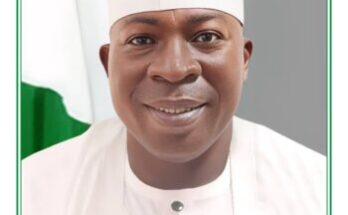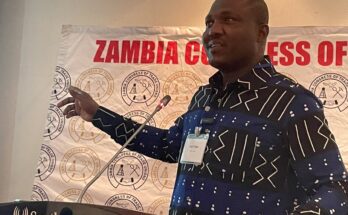Former governor of Kaduna state and leader of People’s Redemption Party (PRP), Alhaji Balarabe Musa in an interview with ABDULRAHEEM AODU, supports restructuring in order to unite Nigeria and give every citizen a sense of belonging.
Governor Seriake Dickson of Bayelsa state recently came to Kaduna and said that the north is indispensable to agitations for restructuring. Do you agree with this view?
The governor is right because restructuring is an affair for all Nigerians. If you take into account the structure of the country, the north in terms of land mass is almost three quarter of Nigeria, in population the north is more than the south. If you take into account even the historical experience in governance, the period of the north’s experience in governance is more than that of the south. In terms of concrete reality, what the north feels about restructuring is very crucial for Nigeria but in a civilized society that does not mean that only the north should dictate. The north’s influence is great, you can say that the attitude of the north towards restructuring is more crucial than attitude of the south. In a united country, in a country where there is justice and unity, the size is not the determining factor, what is the determining factor is reasoning.
Is restructuring the right thing for Nigeria at this particular time?
Restructuring in Nigeria has been going on since colonial times, even before the colonialists came. Restructuring means changes in the political system, political structure. The British colonies of Lagos and Calabar from where you have the Federal Republic of Nigeria were restructured. The colonies of protectorates of Nigeria and colonies of Calabar and Lagos were restructuring changes, so there is nothing wrong with that. There is something wrong only when people have different motives for restructuring.
What do you think should be the criteria for restructuring the country?
People have different ideas about restructuring. The idea of restructuring for some people involves dissolution of Nigeria but for some others it is to ensure relevance, justice for all, national unity, even and peaceful progressive development of the whole country. Some have the noble idea about unity, democracy and progress. But some have an idea of restructuring which amounts to disunity, dissolution of Nigeria as we have seen.
We see restructuring under the current realities as Nigeria being more efficient, more capable of coping with international development. We see the desirable restructuring of Nigeria in terms of national reconciliation for all of us to believe in one Nigeria and make progress towards that. We see restructuring as going back to regional arrangements at least six regions as federating units. The regions then were more efficient and more capable of bringing rapid development and of using resources available to them effectively. We see restructuring in terms of changing the socio-economic system of the country to the public interest ahead of the personal interest, in terms of changing the economy so that the state plays leading roles in the economy to ensure peace, justice and equality dignity of human person and that of the whole country. Others see restructuring in terms of ethnicity; the two cannot agree but the best way to resolve the problem is to sit down and discuss the effective, peaceful and progressive solution.
Unfortunately, our National Assembly is not prepared for that. At the moment, the National Assembly and executive are locked in bitter struggle, they have not been in agreement and for a country to evolve rapidly and peacefully, the executive, legislature and judiciary should work together.
The calls for restructuring have been rife due to the recent killings across the country . . .
These killings have always been there. It is on a higher scale now because government is irrelevant. Looking back at the history of this country, this is the worst time of government solving the problem of the country. The nonsense of herdsmen criminality is part and parcel of history in the northern part but in the south, I mean South south, South west and South east, it shows the manipulative influence of the rich and powerful in Nigeria and their foreign backers. In Ebonyi, Enugu and Imo states how many herdsmen are there? You can count them on your fingers. How many are they? How armed are they? How did they get their ammunitions? How can we have the problems of herdsmen killings that go beyond the control of the government? We can understand herdsmen in Kaduna, Kebbi, Kwara, Kogi states they have been living side by side with the Hausas, herdsmen have been existing in the north but herdsmen violence in Ekiti state, and other southern states, how many are they numerically and how armed are they? How did they get their weapons? Foreign or state manipulation is the main reason for herdsmen problems in Ebonyi, Enugu and Imo states or why can’t they be controlled by the community, and the state? There is manipulation for political reasons and for other factors. When it comes to violence, the herdsmen are not that many for the community and government not to be able to deal with it. I’m also a victim of herdsmen, I lost 200 cattle to rustlers and it t is understandable because my neighbours are herdsmen.
There has been clamour that the youth should be in the majority in the national conference that would determine the country’s restructuring. Do you subscribe to this argument?
This is rubbish because the youths today are not relevant to power as they used to be. The youth before were prepared for position of leadership, Anthony Enahoro, Maitama Sule were youth when they took position of authority and they did well. Their parents were not so poor that they could not maintain discipline on their children, there was free education and employment opportunities. They were prepared for leadership by the society. The youth of today, their parents are poor and cannot take care of them. Today there are no preparations, so the youth used to do bad things. Education is an important factor in the preparation of youth being leaders of tomorrow. In the 80s, there was a feeling that the north was 40 years behind the south in educational advancement and this gap should be bridged in the interest of national unity.
Though the northern state governors have tried their best since the 80s, today the gap has been reduced to 20 years gap but whatever programme is being made to bridge the gap is eliminated by the greater number of drug abuse in the north than in the south. I attended an event in Kano where someone delivering a paper and said that 70% of youth in Kano are drug addicts to some degree. Someone said Daura, the president’s hometown, has more drug addicts among the youth than even Kano. And these are the youth that can take over? Let’s make our youth relevant before we can deceive ourselves. Education is for the elites, the parents of most of these youths are poor and unemployment is high. We are deceiving ourselves that youth are ready in the country for leadership because the relevance of the youth is reduced.



